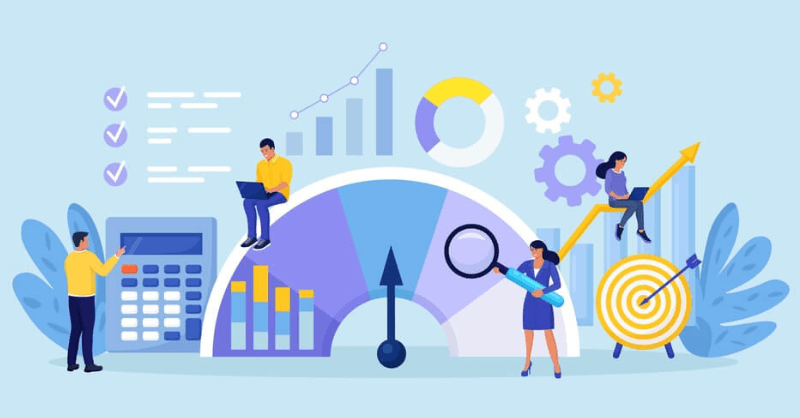Besides, it is the stage where ongoing performance management comes into play. Also, with the proper performance management software, you can observe teams’ performance in real-time. Besides, you can change and correct course whenever needed. In the performance management cycle, monitoring is vital. It assists in attaining the goals in the planning stage.
Yet, the monitoring will not be as helpful if it is only done once or twice during the year. Thus, the management monitors employees’ monthly targets to check their progress. Then, offer help if needed, and assist employees in solving any problems. Also, adjust goals if necessary.
Developing
You have been monitoring your employees and got some things to sort out. That’s where development and improvement come into play.
”Developing” means boosting the ability to perform through training and improving work processes. Besides, development efforts can strengthen good performance. It helps employees keep up with changes. One education for business can help you to get you employee trained very well.
Moreover, this stage uses the data obtained during the monitoring phase. For example, it may need to provide an assignment that helps them enhance their performance and knowledge on the job.
Reviewing
In this stage, you must assess and review your employee’s performance. Besides, you can rate their performance based on a benchmark.
A comprehensive evaluation of employees’ final performance is conducted in the reviewing stage. This is where employee success or possible shortcomings are identified. Apart from this, it is another chance to build cooperation with the employee.
Likewise, ratings are necessary to identify the state of employee performance. Both peers and managers can provide these ratings for 360-degree feedback.
Also, employees should be more active in the other phases of the performance management cycle. The more motivation they will get to reach the organisational goals.
Moreover, proper monitoring ensures the management has a good view of how well the employee performed during the year. The review is a chance for management and employees to consider both the final result and the process.
Rewarding
Who doesn’t like a reward? A reward for a child or an adult always works as a motivator. The last step in the performance management cycle is rewarding. Recognising and rewarding good performance is vital to the performance management process.
Besides, employee motivation and engagement are essential. You can do this with a simple “Thank You” or even with personalized thank-you gifts. An employee awards social recognition that rewards outstanding performance in the organisation.
Moreover, recognising your employees’ success shows their worth to the organisation from top to bottom. Also, your employees lose motivation without recognition and rewards. So, their future performance may decrease.


![]() 16 minutes
16 minutes


![]() 16 minutes
16 minutes